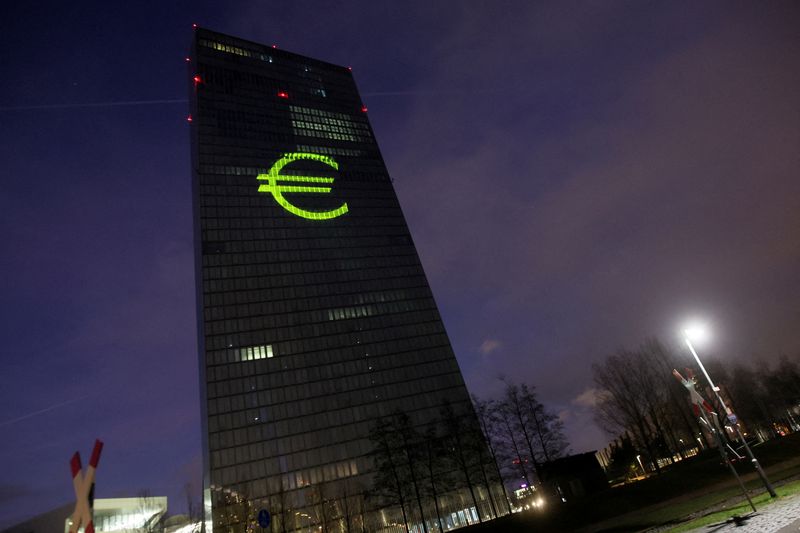Eurozone Bond Yields Drop Sharply as Markets Reprice ECB Rate Outlook
2022.07.22 19:29

By Geoffrey Smith
Investing.com — Eurozone bond yields had their biggest daily drop since May on Friday, as weaker-than-expected business surveys and comments from European Central Bank officials combined to bolster hopes that the bank’s policy tightening cycle will be over relatively quickly.
By 11:50 AM ET (1550 GMT), the yield on the benchmark 2-Year German government note, which is closely tied to expectations of ECB rates, was down 27 basis points at 0.39%, it lowest since the end of May. The analogous Italian note yield, which typically signals any fear of near-term stress in the Eurozone’s fabric, was also down by 25 basis points, despite the collapse of Mario Draghi’s government on Wednesday and the calling of new elections by President Sergio Mattarella.
The moves were triggered by various factors: the S&P Global purchasing managers index for the Eurozone showed the region’s economy slipping back into contraction in June, falling to 49.4 from 52.0 in May. That’s a level that would usually signal economic contraction, but analysts pointed out that the survey was taken before Russia resumed shipments of gas through the Nord Stream pipeline earlier this week. As such, it may reflect more pessimism than has actually been warranted by events since then. The index is subject to revision at the end of the month.
The second factor behind the drop was the ECB’s publication of its professional forecasters’ survey, which showed a sharp downward revision to expectations for Eurozone growth next year – to 1.5% from 2.3% only three months ago. That doesn’t even include the change in outlook caused by the ECB’s own acceleration of its rate hike schedule this week: having guided for an increase of 25 basis points in its official rates at Thursday’s council meeting, the ECB went further, hiking by 50 basis points to end a period of nearly nine years of negative rates.
Those developments made markets sensitive to any suggestion that the ECB will stop hiking sooner as the economy weakens. One such suggestion came from Bank of France Governor Francois Villeroy de Galhau, who was quoted by newswires as saying that: “Starting the increase in interest rates faster does not mean that (the cycle of increases) will end higher.”
Meanwhile, Slovakian central bank Governor Peter Kazimir, one of the ECB’s more hawkish members, said in a statement that the next rate hike September could be only 25 basis points, rather than the 50 that many had started to expect after inflation overshot again to a new euro-era record of 8.6% in June.
“After yesterday’s 50 basis points, we only expect the ECB to hike a further 50 basis points in total as recessionary pressures are already cooling the economy quite significantly,” ING economist Bert Colijn said in a note to clients.
The ECB still doesn’t predict a recession for the Eurozone over the next two years – a point that President Christine Lagarde emphasized more than once at her press conference on Thursday.
The euro was broadly unchanged from late Thursday at $1.0216, but on course for a modest weekly gain.








